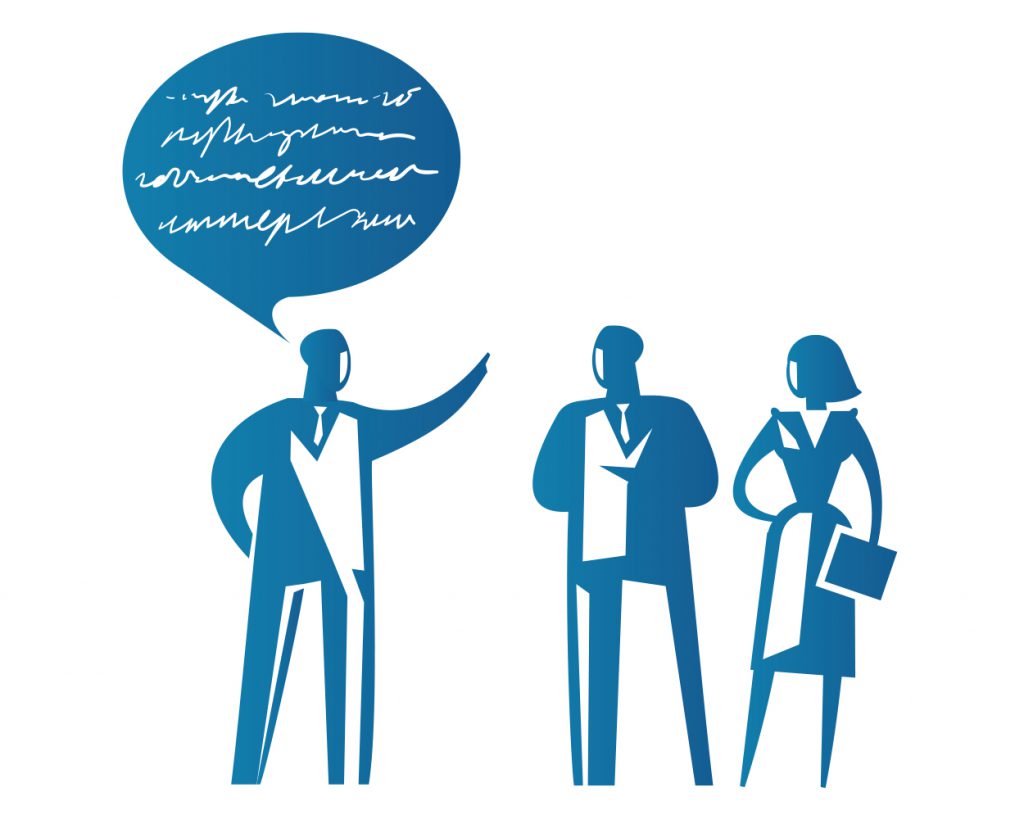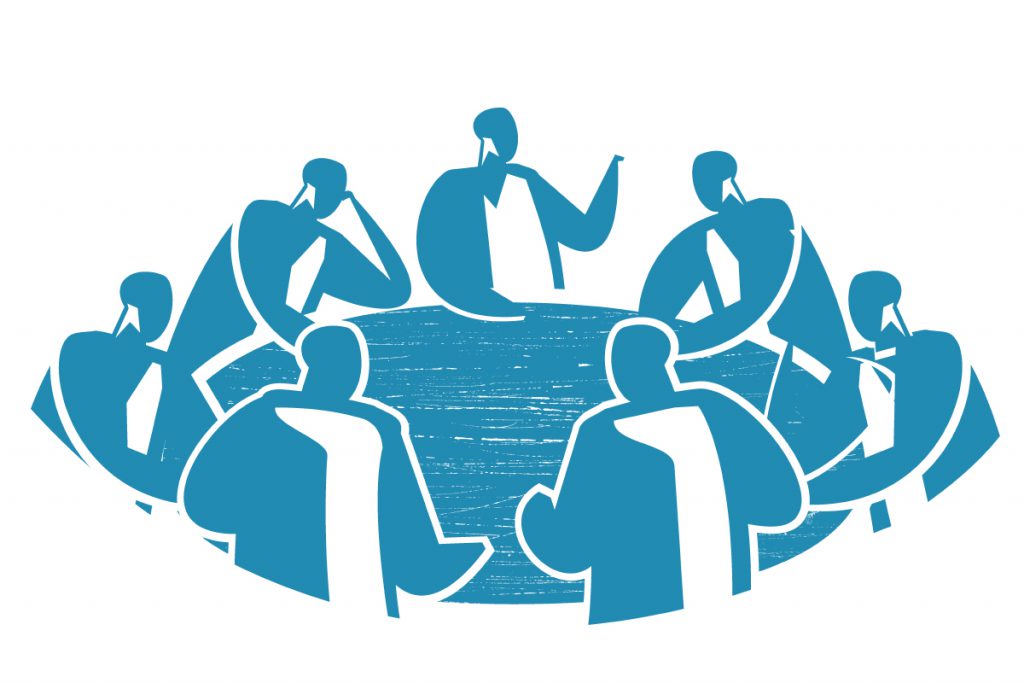Quest To Build The Perfect Team
Part of a leader’s job is to cultivate good Communication, which is achieved through creating an effective connection within the team. This article discusses how Google searched for the secrets of good Communication.
WHAT IS COMMUNICATION IN LEADERSHIP?
nytimes.com/2016/02/28/magazine/what-google-learned-from-its-quest-to-build-the-perfect-team.html

In 2011, Google became focused on building the perfect team. The company’s top executives had long believed that building the best teams meant simply combining the best people. However,
some teams of the best people failed while others succeeded. So in 2012, the company embarked on an initiative, code-named
Project Aristotle, to study hundreds of Google’s teams and figure out why some teams stumbled while others soared.
No matter how researchers arranged their data, though, it was almost impossible to find patterns — or any evidence that the composition of a team made any difference. ‘‘We looked at 180 teams from all over the company,’’ Abeer Dube, one of the project leaders, said. ‘‘We had lots of data, but there weren’t any strong patterns.’’

In 2008, a group of psychologists from Carnegie Mellon, M.I.T., and Union College began to try to answer a question very much like this one. As the researchers studied the groups, they noticed two behaviors that all the good teams generally shared. First, on the good teams, members spoke in roughly the same proportion, a phenomenon the researchers referred to as ‘‘equality in distribution of conversational turn-taking.’’ On some teams, everyone spoke during each task; on others, leadership shifted among teammates from assignment to assignment. But in each case, by the end of the day, everyone had spoken roughly the same amount. ‘‘As long as everyone got a chance to talk, the team did well,’’ Woolley said. ‘‘But if only one person or a small group spoke all the time, the collective intelligence declined.’’
Second, the good teams all had high ‘‘average social sensitivity’’ — a fancy way of saying they were skilled at intuiting how others felt based on their tone of voice, their expressions, and other nonverbal cues. They seemed to know when someone was feeling upset or left out. In contrast, people on the ineffective teams seemed, as a group, to have less sensitivity toward their colleagues.
This research led the Google team to an important point: Within psychology, researchers sometimes colloquially refer to traits like ‘‘conversational turn-taking’’ and ‘‘average social sensitivity’’ as aspects of what’s known as psychological safety — a group culture that the Harvard Business School professor Amy Edmondson defines as ‘‘a sense of confidence that the team will not embarrass, reject, or punish someone for speaking up.’’ Edmondson wrote in a study published in 1999 that, ‘‘It describes a team climate characterized by interpersonal trust and mutual respect in which people are comfortable being themselves.’’
Google’s team now concluded that psychological safety, more than anything else, was critical to making a team work.
However, establishing psychological safety is, by its very nature, somewhat messy and difficult to implement; there is no magic formula to create it. Regardless, in late 2014, the Project Aristotle number-crunchers began sharing their findings with select groups of Google’s 51,000 employees. By then, they had been collecting surveys, conducting interviews, and analyzing statistics for almost three years. They hadn’t yet figured out how to make psychological safety easy, but they hoped that publicizing their research within Google would prompt employees to come up with some ideas of their own.
Matt Sakaguchi, a mid-level manager at Google who had just started working with a new team, took a particular interest in Project Aristotle. He had just concluded work with a team that hadn’t jelled and wanted to make sure his new team would work better. The researchers gave him a survey to give to his team. It came back with some surprising results. The group felt like their overall teamwork was satisfactory, but were dissatisfied with other aspects of the team dynamic. In response, Sakaguchi called a meeting. He began the meeting with something peculiar for Google’s generally cerebral engineers: a round table “getting to know you” discussion. The first to talk, he instinctively confessed something none of his new associates knew: he had a slow-growing metastatic cancer with no cure and was slowly dying.
There was nothing in the survey that instructed Sakaguchi to share his illness with the group. There was nothing in Project Aristotle’s research that said that getting people to open up about their struggles was critical to discussing a group’s norms. But to Sakaguchi it made sense that psychological safety and emotional conversations were related. The behaviors that create psychological safety — conversational turn-taking and empathy — are part of the same unwritten rules we often turn to, as individuals, when we need to establish a bond. And those human bonds matter as much at work as anywhere else. In fact, they sometimes matter more.

‘‘Googlers love data,’’ Sakaguchi said. By adopting the data-driven approach of Silicon Valley, Project Aristotle has encouraged emotional conversations and discussions about norms among people who might otherwise be uncomfortable talking about how they feel. ‘‘By putting things like empathy and sensitivity into charts and data reports, it makes them easier to talk about,’’ Sakaguchi told me. ‘‘It’s easier to talk about our feelings when we can point to a number.’’
The paradox, of course, is that Google’s intense data collection and number crunching have led it to the same conclusions that good leaders have always known: that in the best teams, members listen to one another and show sensitivity to feelings and needs.
The fact that these insights aren’t wholly original doesn’t mean Google’s contributions aren’t valuable. In fact, in some ways, the ‘‘employee performance optimization’’ movement has given us a method for talking about our insecurities, fears, and aspirations in more constructive ways. It also has given us the tools to quickly teach lessons that once took leaders and managers decades to absorb. Google, in other words, in its race to build the perfect team, has perhaps unintentionally demonstrated the usefulness of imperfection and done what Silicon Valley does best: figure out how to create psychological safety faster, better, and in more productive ways.
‘‘Don’t underestimate the power of giving people a common platform and operating language.’’ one of the lead researchers said.
“I believe in tradition and innovation, authenticity and passion.”
JOSE ANDRES